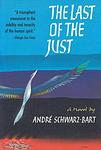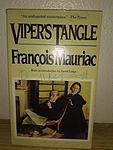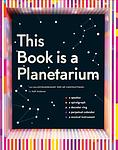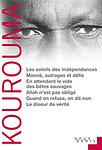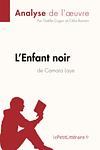The Greatest French "Fiction, Social & Cultural Fiction" Books Since 1910
Click to learn how this list is calculated.
This list represents a comprehensive and trusted collection of the greatest books. Developed through a specialized algorithm, it brings together 294 'best of' book lists to form a definitive guide to the world's most acclaimed books. For those interested in how these books are chosen, additional details can be found on the rankings page.
Genres
Social & Cultural Fiction is a literary category that encompasses novels and stories that delve into the complexities of society and culture, exploring themes such as class, race, gender, and identity within specific social contexts. These narratives often provide a lens through which readers can examine the intricacies of human relationships and the impact of cultural norms and societal structures on individuals and communities. By offering a fictional yet reflective portrayal of real-world social dynamics, this genre invites readers to gain a deeper understanding of the diverse experiences that shape our world. Authors in this category frequently use their characters and settings to comment on contemporary issues, challenge prevailing ideologies, and provoke thought about the possibility of social change, making Social & Cultural Fiction a powerful tool for empathy and a mirror for the ever-evolving human condition.
Countries
Date Range
Reading Statistics
Click the button below to see how many of these books you've read!
Download
If you're interested in downloading this list as a CSV file for use in a spreadsheet application, you can easily do so by clicking the button below. Please note that to ensure a manageable file size and faster download, the CSV will include details for only the first 500 books.
Download-
1. In Search of Lost Time by Marcel Proust
This renowned novel is a sweeping exploration of memory, love, art, and the passage of time, told through the narrator's recollections of his childhood and experiences into adulthood in the late 19th and early 20th century aristocratic France. The narrative is notable for its lengthy and intricate involuntary memory episodes, the most famous being the "madeleine episode". It explores the themes of time, space and memory, but also raises questions about the nature of art and literature, and the complex relationships between love, sexuality, and possession.
-
2. The Stranger by Albert Camus
The narrative follows a man who, after the death of his mother, falls into a routine of indifference and emotional detachment, leading him to commit an act of violence on a sun-drenched beach. His subsequent trial becomes less about the act itself and more about his inability to conform to societal norms and expectations, ultimately exploring themes of existentialism, absurdism, and the human condition.
-
3. Journey to the End of The Night by Louis-Ferdinand Céline
The novel is a semi-autobiographical work that explores the harsh realities of life through the cynical and disillusioned eyes of the protagonist. The narrative follows his experiences from the trenches of World War I, through the African jungles, to the streets of America and the slums of Paris, showcasing the horrors of war, colonialism, and the dark side of human nature. The protagonist's journey is marked by his struggle with despair, loneliness, and the absurdity of existence, offering a bleak yet profound commentary on the human condition.
-
4. The Counterfeiters by André Gide
"The Counterfeiters" is a complex novel that explores themes of authenticity, morality, and identity, primarily through the lens of a group of friends in Paris. The story revolves around a series of counterfeit coins, which serve as a metaphor for the characters' struggles with their own authenticity and self-perception. The narrative also delves into the lives of the characters, their relationships, personal struggles, and their journey towards self-discovery. The book is noted for its non-linear structure and metafictional elements, with the author himself being a character in the story.
-
5. The Mandarins by Simone de Beauvoir
"The Mandarins" is a novel that explores the personal and political lives of a group of intellectuals in post-World War II France. The narrative delves into their struggles with ethical dilemmas, political ideologies, and personal relationships in a rapidly changing world. The book is known for its exploration of existentialism and feminism, providing a vivid portrayal of the human condition and the complexities of freedom.
-
6. Death on Credit by Louis-Ferdinand Céline
"Death on Credit" is a semi-autobiographical novel that explores the life of a young Frenchman in Paris during the early 20th century. The protagonist, a medical student from a poor family, struggles with the harsh realities of life, including poverty, sickness, and death. The narrative is marked by its dark humor, cynicism, and scathing critique of society, reflecting the author's own experiences and views. The protagonist's journey is a constant struggle against the absurdity and despair of existence, depicted through a series of episodic adventures and misadventures.
-
7. Suite Française by Irène Némirovsky
"Suite Française" is a two-part novel set during the early years of World War II in France. The first part, "Storm in June," follows a group of Parisians as they flee the Nazi invasion. The second part, "Dolce," shows life in a small French village under German occupation. The novel explores themes of love, loss, and survival, and provides a unique perspective on life in France during the war. The book was written during the war but was not discovered and published until many years later.
-
8. The Life Before Us by Romain Gary
The novel is a poignant exploration of the bond between a young Arab boy, Momo, and an elderly Jewish woman, Madame Rosa, who is a Holocaust survivor and former prostitute. Living in the Belleville neighborhood of Paris, Madame Rosa takes care of the children of other prostitutes, and Momo becomes her protégé and closest companion. Through their relationship, the story delves into themes of love, loss, and the resilience of the human spirit in the face of adversity. The narrative, told from Momo's perspective, captures the struggles and the multicultural tapestry of life in a Parisian slum, while also addressing the weight of history and the complexity of identity and belonging.
-
9. The Last Of The Just by André Schwarz-Bart
The book is a poignant and harrowing narrative that follows the tragic history of the Levy family over eight centuries, focusing on the lineage of the "Just Men" - thirty-six pure souls in each generation said to bear the sufferings of the world. The story culminates with the life of Ernie Levy, who, despite the encroaching horrors of the Holocaust, maintains an unwavering faith in human goodness. His journey through the ghettos and concentration camps of World War II Europe is a testament to the endurance of the human spirit in the face of unspeakable evil, as he upholds his family's legacy of compassion until his last breath.
-
10. Viper’s Tangle by François Mauriac
"Viper's Tangle" is a psychological novel that tells the story of a wealthy lawyer who, in his old age, becomes increasingly bitter and misanthropic. The protagonist writes a series of letters to his wife, expressing his deep resentment towards his family who he believes are only interested in his fortune. As he grapples with his own mortality and the meaninglessness of his life, he experiences a spiritual awakening that leads him to reconsider his views on love, family, and faith.
-
11. The Bells of Basel by Louis Aragon
"The Bells of Basel" is a novel set against the backdrop of the early 20th century, focusing on three main characters: a revolutionary, a prostitute, and a corporate lackey. Each character represents a different aspect of society, and their stories intertwine to create a rich tapestry of life during this tumultuous period. The novel explores themes of love, betrayal, and political unrest, offering a biting critique of capitalism and the bourgeoisie.
-
12. The Roots of Heaven by Romain Gary
The novel is set in post-World War II French Equatorial Africa and follows Morel, a French environmental activist who is fighting to protect elephants from extinction. Morel's crusade against elephant poaching not only draws the attention of other Europeans living in Africa, but also inspires a range of African characters to join his cause. The narrative explores themes of freedom, nature, and the struggle against colonialism and commercial exploitation.
-
13. Things: A Story of the Sixties by Georges Perec
This novel follows the lives of a young couple living in Paris during the 1960s. The couple, both freelancers, dream of a luxurious lifestyle filled with expensive goods and high-class culture. However, they struggle to achieve their aspirations due to their low income. The book explores themes such as consumerism, societal pressure, and the gap between dreams and reality, providing a critical look at the materialistic desires and ambitions of the young generation during the sixties.
-
14. The Vice-Consul by Marguerite Duras
This novel follows the story of three lonely, dispossessed people in Calcutta, India: a troubled former French diplomat, a young French woman haunted by her past, and a poverty-stricken Indian woman. As their lives intersect, they grapple with desire, despair, and the struggle for redemption. The narrative is a complex exploration of colonialism, privilege, and the human condition, told through the lens of these three characters' tragic and intertwined lives.
-
15. The Planetarium by Nathalie Sarraute
In "The Planetarium," the narrative delves into the complex web of human relationships and the subtle power dynamics within a Parisian family. The story unfolds through a series of internal monologues and fragmented conversations, focusing on a young writer who seeks recognition and support from his self-absorbed aunt. The aunt, preoccupied with her own social status and the maintenance of her bourgeois lifestyle, becomes the center of a psychological exploration of pretense, manipulation, and the struggle for authenticity in a world governed by social appearances. The novel dissects the intricacies of familial expectations and the individual's quest for identity amidst the pressures of societal conformity.
-
16. Cleaned Out by Annie Ernaux
"Cleaned Out" is a poignant autobiographical novel that delves into the life of a young woman coming of age in post-war France. The narrative follows her journey from a working-class background through her experiences at a boarding school and university, where she grapples with the social and sexual mores of the time. The protagonist's struggle with an unwanted pregnancy and the subsequent illegal abortion is a central and harrowing theme, reflecting the broader issues of female autonomy and the class divide. The novel is a stark and unflinching exploration of identity, memory, and the societal pressures that shape the lives of women.
-
17. L'étrange Destin De Wangrin by Amadou Hampâté Bâ
"L'étrange Destin De Wangrin" by "Amadou Hampâté Bâ" is a captivating narrative that delves into the life of Wangrin, a complex and enigmatic figure in West African society. Through a series of interconnected stories, the book explores Wangrin's rise from a humble clerk to a powerful and influential figure, as well as his eventual downfall. Set against the backdrop of colonialism and cultural clashes, the novel offers a thought-provoking exploration of identity, power dynamics, and the consequences of one's choices.
-
18. Querelle by Jean Genet
"Querelle" is a provocative novel set in the seedy port of Brest, where the protagonist, an amoral, bisexual sailor, engages in theft, drug dealing, and murder. The story explores themes of identity, sexuality, and power, presenting a dark and complex character study that challenges societal norms and expectations. The narrative is imbued with homoerotic undertones, reflecting the author's own experiences and perspectives as a gay man.
-
19. Le Pauvre Christ De Bomba by Mongo Beti
"Le Pauvre Christ De Bomba" is a satirical novel set in colonial Cameroon, highlighting the cultural clash between the indigenous people and the French colonizers. The story follows the life of a young boy named Christophe, who is sent to a Catholic mission school and becomes the subject of ridicule due to his poverty and African heritage. Through Christophe's experiences, the author exposes the hypocrisy and injustices of the colonial system, shedding light on the destructive effects of colonization on African society.
-
20. L'aventure Ambiguë by Cheikh Hamidou Kane
"L'aventure Ambiguë" is a thought-provoking novel that explores the complexities of identity and cultural clash in postcolonial Africa. The story follows Samba Diallo, a young Senegalese boy who is sent to a French school to receive a Western education. As he grows older, Samba finds himself torn between his traditional African roots and the allure of the modern world. Through vivid descriptions and introspective narratives, the book delves into themes of colonialism, religion, and the struggle to reconcile conflicting cultural values.
-
21. Les Soleils Des Indépendances by Ahmadou Kourouma
"Les Soleils Des Indépendances" is a satirical novel that explores the post-independence struggles of an African nation through the lens of a dysfunctional family. Set in the fictional country of Katana, the story follows Fama, the patriarch, as he grapples with the loss of his wealth and influence in the wake of independence. Through vivid characters and dark humor, the book delves into themes of corruption, cultural clashes, and the disillusionment of a nation striving for progress.
-
22. L'enfant Noir by Camara Laye
"L'enfant Noir" is a memoir that follows the life of a young boy growing up in colonial Guinea. The book vividly portrays his journey from a traditional African village to the bustling city of Conakry, where he faces the challenges of cultural assimilation and the loss of his native language and customs. Through his experiences, the author explores themes of identity, education, and the clash between tradition and modernity, offering a poignant reflection on the complexities of growing up in a changing world.
-
23. Le Vieux Nègre Et La Médaille by Ferdinand Oyono
"Le Vieux Nègre Et La Médaille" by Ferdinand Oyono is a thought-provoking novel set in colonial Africa, exploring the complexities of power dynamics and racial discrimination. The story follows the life of an elderly African man who, after receiving a medal from the French government for his loyalty during World War II, becomes disillusioned with the empty promises of equality and justice. Through vivid storytelling and poignant symbolism, the book sheds light on the harsh realities faced by African individuals under colonial rule.
-
24. Le Jeune Homme De Sable by Williams Sassine
"Le Jeune Homme De Sable" is a thought-provoking novel that follows the journey of a young man named Sissoko, who is torn between his traditional African roots and the allure of the Western world. Set in postcolonial Africa, the book explores themes of cultural identity, colonialism, and the impact of globalization on the younger generation. Through Sissoko's experiences and encounters, the author delves into the complexities of modernity and the challenges faced by individuals striving to find their place in a rapidly changing society.
-
25. La Vie Et Demie by Sony Labou Tansi
"La Vie Et Demie" is a thought-provoking novel set in an unnamed African country, where an oppressive regime has seized power and implemented a bizarre policy of dividing its citizens into "halves" and "wholes." The story follows the life of a young girl named Sophie, who is born as a "half" and faces discrimination and hardship due to her status. Through Sophie's experiences, the author explores themes of identity, inequality, and the dehumanizing effects of totalitarianism, offering a powerful critique of social and political systems.
Reading Statistics
Click the button below to see how many of these books you've read!
Download
If you're interested in downloading this list as a CSV file for use in a spreadsheet application, you can easily do so by clicking the button below. Please note that to ensure a manageable file size and faster download, the CSV will include details for only the first 500 books.
Download







